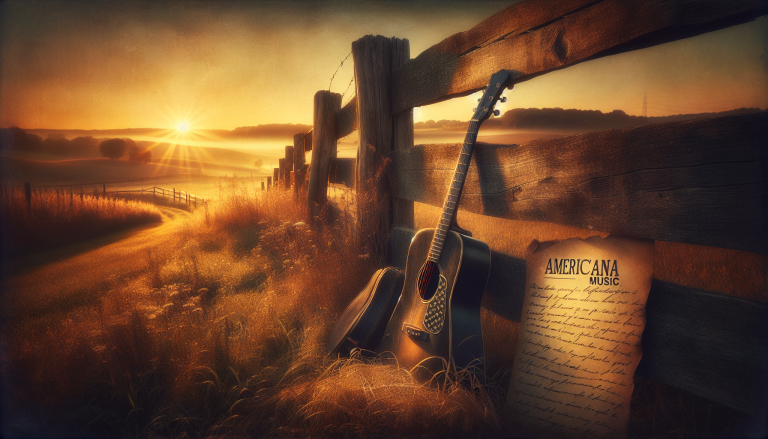The Grit and Glory of Americana Music: Where Roots Run Deep
In the sprawling tapestry of American music, Americana music stands out as a rugged, heartfelt chronicle of the country’s soul. It’s a genre stitched together with threads of traditional folk, country, blues, and bluegrass—each strand carrying stories told around campfires and in honky-tonks long before rock music or heavy metal music carved their own legacies. To dive into Americana is to embark on a journey through the American heartland, revisiting its hardships, hopes, and the enduring spirit of its people.
Historical Context: A Sound Born from the American Soil
Americana music isn’t just a collection of sounds; it’s an echo of a bygone era that never quite fades. Its roots stretch back to the early 20th century, emerging from the rural landscapes where African American blues met Appalachian ballads. This fusion reflects the complex cultural crossroads of the American South, blending the sorrow of slaves’ spirituals and the storytelling traditions of Irish and English immigrants.
By the mid-century, artists like Woody Guthrie and Hank Williams had already begun to define this raw, acoustic energy—infusing simple melodies with poetic narratives about the land, family, hardship, and faith. Their songs were laced with grit and honesty, capturing the struggles and triumphs of everyday Americans. These narratives laid the foundation for what would crystallize decades later as Americana music, a romantic revival and reinvention of those vernacular roots.
Genre Description: The Soulful Intersection of Tradition and Innovation
At its core, Americana music thrives on authenticity and an organic sound. Unlike the often polished surfaces of mainstream country or the aggressive roar of heavy metal music, Americana is unvarnished and heartfelt. Acoustic instruments—banjo, fiddle, mandolin, and harmonica—take center stage alongside pedal steel guitars and upright bass, creating textures that feel both intimate and expansive.
Lyrically, it often tells stories of love and loss, migration, social justice, small town life, and introspection—imbued with poetic craftsmanship. The genre isn’t confined to a strict formula; it borrows freely yet respectfully from the past, blending elements of folk’s storytelling with country’s twang, blues’ raw emotion, and soul’s grit. This melding of styles creates a soundscape that is both timeless and immediate, capturing the complexity of American life without gloss.

Key Artists or Groups: Guardians of the Americana Flame
Few genres boast such a rich roster of storytellers as Americana music. Legend has it that Bob Dylan’s early works breathed new life into folk traditions, bridging the political angst of the 1960s with personal narrative—a blueprint for Americana’s narrative depth. However, it is artists like Emmylou Harris who honed the sound, weaving traditional music with contemporary flair, bringing Americana more into the mainstream spotlight.
Fast forward to modern torchbearers: Jason Isbell’s soulful songwriting evokes quiet desperation and redemption, while Lucinda Williams channels raw, Southern gothic poetry in her evocative vocals. The Avett Brothers and The Lumineers have also drawn wide audiences with their fusion of folk and rock elements, proving that Americana resonates deeply with listeners craving sincerity and roots.
The genre’s live performance culture deserves a shoutout too—venues like the Ryman Auditorium in Nashville and small-town festivals elevate Americana’s communal spirit, making the music feel less like a commodity and more like an ongoing conversation across generations.
Notable Songs or Albums: Timeless Tales Etched in Melody
Certain songs and albums cement Americana music’s influence and demonstrate its narrative power. Townes Van Zandt’s “Pancho and Lefty” remains a haunting ballad that intertwines myth with the American outlaw legend, its melancholy chords echoing through decades. Gram Parsons’ “Grievous Angel” stands as a seminal album embracing the country-psychedelic hybrid that influenced rock music while retaining Americana’s soul.
More recently, Jason Isbell’s “Southeastern” album offers a raw, confessional look at recovery and renewal—each track layered with intricate storytelling and intricate arrangements. Meanwhile, John Prine, whose passing in 2020 left a palpable void, gifted the genre with an unpretentious charm and wit on songs like “Angel From Montgomery,” which captured everyman’s struggles and dreams.
These works don’t simply entertain; they invite listeners to sit down, listen hard, and feel the weight of the American experience, from sunlit porches to desolate crossroads.
Lasting Effects: Why Americana Music Matters in an Ever-Changing Landscape
Americana music’s lasting impact lies in its ability to preserve and evolve American music traditions side-by-side. It is a vital narrative vessel, reminding us that beneath the loud roar of heavy metal music or the electric pulse of rock music lies a foundational story anchored in simplicity and truth.
As digital streaming sculpts new listening habits, Americana has found a devoted audience hungry for connection and depth—not just a fleeting hit. The genre influences contemporary rock musicians who seek to explore narrative songwriting and incorporate roots elements into their soundscapes. It also shapes American music at large by pushing back against homogenized pop trends, carving out space for music that honors history without nostalgia’s weighty bind.
In essence, Americana music serves as a living archive, a bridge linking the seismic shifts of American cultural history with the intimate moments of individual lives. Its continued vitality ensures that the spirit of traditional American music endures—not as a relic but as a vibrant, breathing force shaping the future of American music itself.